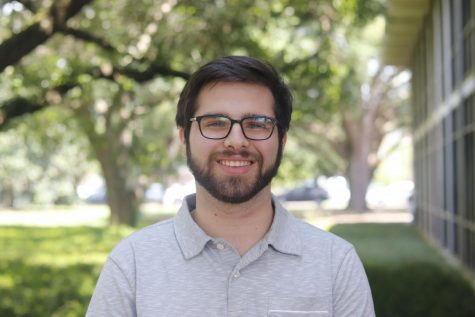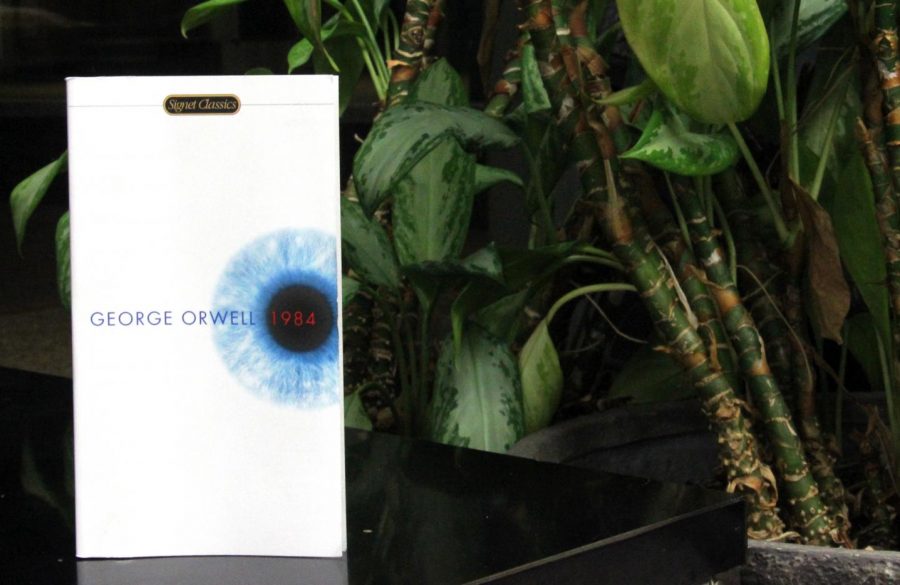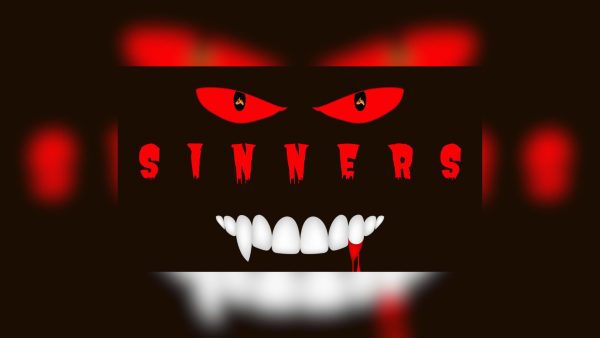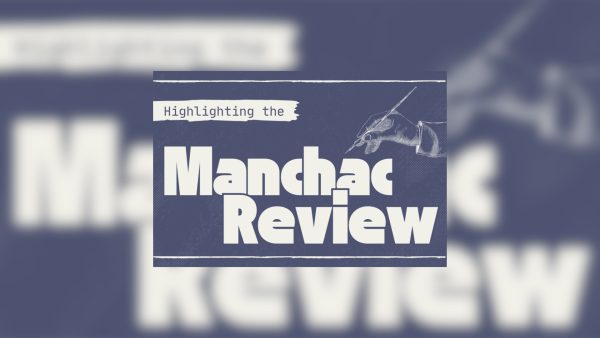1984 to 2019: Is Big Brother still watching?
Dylan Meche/The Lion’s Roar
Orwell’s dystopian novel “1984” published in the year 1949 has remained relevant even after more than half a century of its publication.
70 years after its original publication, George Orwell’s dystopian novel “1984” is still ingrained within our popular culture.
Written in 1949, the book centers around a man named Winston Smith who lives in the totalitarian futuristic country named Oceania in the year 1984. Oceania is one of three super-states left in the world which is ruled by the English Socialist Party, referred to in the book as Ingsoc.
Smith works for the party, and the world that he lives in is very controlled. There is a specific way that all people are required to talk, and they are prevented from partaking in the many freedoms we enjoy.
Throughout the course of the book, Smith starts to wonder about the past before the revolution that led to the creation of Oceania and questions the state. He also participates in more activities that are deemed illegal by the party, such as having an affair with a coworker. Eventually, he has some encounters with leaders of the state who crush his spirit and show him that the state is going to win in the end.
Natasha Whitton, a professor of English and freshman English coordinator, explained the deeper themes of the novel.
“Orwell was thinking of the social contract, which writers and thinkers had been playing with for several years before he wrote the novel,” said Whitton. “Basically, what is it that you give up as an individual when you agree to be apart of a society. In this book, he is showing that sometimes that too much individual freedom can be given up.”
One major theme of the novel is personal freedom and how much control the state should have over an individual.
“The book asks if infringing about personal freedoms is something that the state should do,” explained Whitton. “The tagline of ‘1984,’ what most people remember, is ‘Big Brother is watching you.’ This is seen on many of the large screens that are a part of everyone’s homes and public spaces which sends the message that people cannot have private thoughts. What sort of benefits come from this system? Is the price too high?”
Orwell wrote the book thinking about the rise of communism after World War II in 1945. It was not yet clear at that time that the western countries opposed communism. So, Orwell wrote the story to warn the West against it.
“These totalitarian states that arose in the aftermath of World War II took away lots of personal freedoms to the point where most of the population lived in abject poverty,” explained Whitton. “In most of the countries that adopted communism, there was this atmosphere of great fear of the state similar to what we see in the novel. Orwell was trying to think about what some of the results of these policies would be. So in ‘1984,’ he was imagining extreme versions of these governments.”
Whitton believes that the themes and questions asked in the novel are still relevant today and will be relevant for many years to come.
“As humans, we have a natural tendency to want to live in community and that will always create conflict,” said Whitton. “Communities necessitate communication and sharing resources so there will always points in which we have to ask ourselves ‘Is this a community I should be a part of, and what is worth giving up for it?’” shared Whitton.
Considering the questions raised by the book are still relevant, Whitton feels it is important for students to read the novel.
“I would reread ‘1984’ because it is a precursor to many of the ideas we see play out in our media today. Several movies such as ‘The Truman Show’ and ‘Minority Report’ have played around with similar themes,” said Whitton. “Also, the debate about how our technology now provides endless amounts of data on every person can be a little frightening. The question that is being asked is the same one posed by Orwell 70 years ago: Are we willing to give up these freedoms for the added convenience our technology provides us?”
Your donation will support The Lion's Roar student journalists at Southeastern Louisiana University.
In addition, your contribution will allow us to cover our annual website hosting costs.
No gift is too small.

Dylan Meche is a Political Science major from Baton Rouge and serves as Opinions Editor. He has been a reporter for The Lion's Roar since August of 2019....





